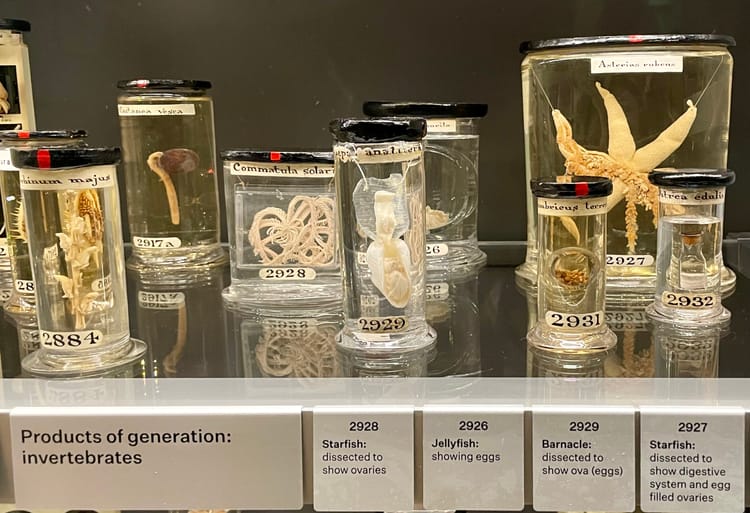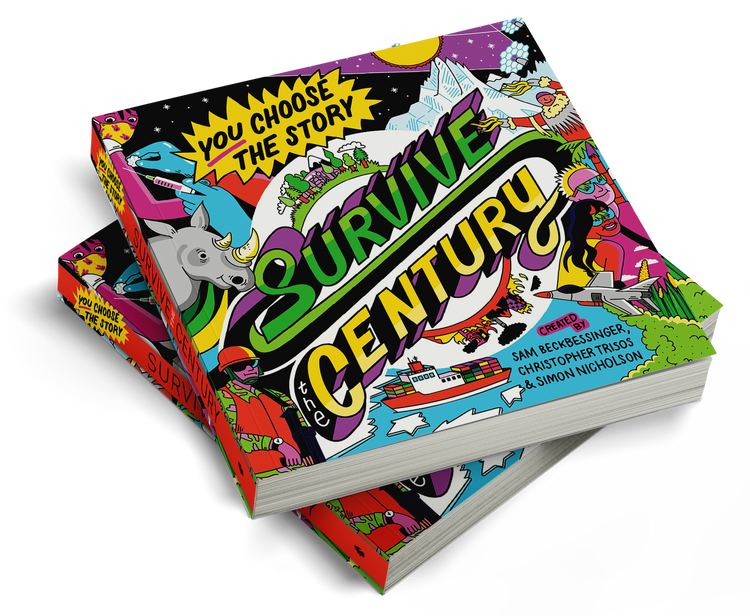Is your job meaningful? And does it have to be?

Hello loves!
Five things I've been musing on this week.
1. Musing about meaningful careers
I was chatting to my friend Rachel the other day about how preposterous it is that we expect 20-somethings to choose their lifelong careers, when we usually know bugger-all about what those jobs will actually be like. We're usually attracted to jobs because of the "big stuff" - the lofty sense of whether they're a way to do good in the world, or if they're prestigious, or if they match up with our identity. But, often, it's the gritty details about what that job is like minute-to-minute that really make us love or hate it. And we have TERRIBLE information about what most jobs actually look like... demonstrated most hilariously by the hashtag #badstockphotosofmyjob on Twitter.
As an astronomer I can't live without my lab coat and goggles. You have no idea how many times they've prevented dark matter from staining my shirts and comet dust from getting in my eyes#badstockphotosofmyjob pic.twitter.com/H6O1ryciXV
— Dr. James O'Donoghue (@physicsJ) June 14, 2021
Rachel was telling me that she became a lawyer because big noble goals, but it was only when she got her first job at a law firm that she learned there was one TINY MINOR detail nobody warned her about: lawyers have to account for their time in six-minute increments. Literally, you have to track what you're doing for every six-minute interval of the workday. That's not the kind of detail that we tell teenagers when they're thinking about CHANGING THE WORLD by studying law, but it's absolutely the kind of thing that might make a job utterly unbearable in reality.
The way to get around this is to give young people more opportunities to shadow people in their real jobs, especially young people who wouldn't otherwise get to meet people from those careers. Choosing a career is a classic example of a hard decision where there's no right answer, but it's also one where active information-gathering can help a lot. So, if you have a job, can you make space for any young people to come and see what it's really like?

I think part of the problem is that we ask a LOT from our careers. For many of us, it's our main source of meaning (and therefore, identity), our primary sense of community and status, the thing that gives us money, and also the thing that structures what our days look like (e.g. are you logging your activities every six minutes; are you wearing a lab coat and pointing at comet dust). It's helpful to explore all of those elements, when we're considering careers. Not just what a career means, but what the average Tuesday looks like.
One of the most life-changing lectures I ever had was from Prof. Amy Wrzesniewski, who studies how people perceive the meaningfulness of their jobs. She spoke about a latitudinal study she was involved in where she interviewed workers at a hospital, at all levels from janitors to brain-surgeons. What was interesting is that she found people at all levels who mostly spoke about their job as instrumental, just something they did because it let them earn money, but the stuff they cared about was outside the job. She found others who were mostly socially motivated - they liked their colleagues and felt a duty towards them, they liked being part of a team and didn't want to let their work-friends down. And she found some who felt that their job was a calling, that it inherently meaningful because it was a way of serving others.
The interesting thing is that Amy found similar rates of these motivations at every level of the hospital hierarchy. I remember Amy saying that when she asked one of the janitors what her job was, she said something like, "I help people heal by keeping their rooms comfortable and hygienic", and she described how she forms such bonds with patients that she still writes letters to some of them after they're discharged. Amy refers to this as "job crafting": it's not just telling yourself a different story about your job, but actually doing it differently (in the cleaner's case, by making human connections with the patients, learning what cleaning chemicals were likely to irritate them less, staying in touch, etc.).
And the inverse, she spoke to some surgeons who felt like it was "just a job".
People are different. Some people need their job to serve a higher purpose, others don't. Some people care about the tribe their job makes them part of, others about how the job can enable them to do entirely unrelated non-job things they care about more. Part of figuring out your career, is figuring out what you need your career to do for you.
Rachel - if you're curious - realised she's mostly someone who needs to be part of a team she likes and respects. She works for the government now, advising on the legal aspects of education policy, and she hasn't had to log her time in years.
2. Radical candour
On a related note, if you manage people, I can make a strong recommendation for Kim Scott's book Radical Candour. It's the only management book I've ever actually enjoyed, as long as you can ignore some of the barf-worthy Silicon Valley-speak. I like it because in addition to making a very sensible main point ("just be a human being, dammit") it's full of helpful practical tips like:
- How to give an authentic compliment in a helpful way - never make it a judgement on who they are as a person (you're so clever and brilliant!). Rather talk about a specific thing someone did and the result it had. Ditto for criticism.
- Start with asking for criticism, not giving it. Ask this question often: Is there anything I could do or stop doing that would make it easier to work with me?
- If a debate is going on for too long, make people switch sides and articulate/defend the other perspective.
- Try to have difficult conversation walking side-by-side, not sitting face-to-face.
- If you're about to have a tough conversation with somebody, offer them a bottle of water first. The simple act of unscrewing the water bottle and taking a sip can give them the few seconds they need to think, pause, and compose themselves, if they want to.
Radical Candour talks about how all teams need both "superstars" and "rockstars" (yes barf-barf-barf) - where "superstars" are the people who want to learn and be challenged and grow into their next job, and "rockstars" are the solid types who have already found their groove, thanks, and just need to be honoured and rewarded. You need both! A boss's job is not to provide purpose. A boss's job is to know every person in your team well enough that you understand their sense of purpose. And respect the fact that it might not lie inside the job.
3. The Financial Times Climate Game
I loved this little text-based game from the Financial Times that challenges you to set policies to save the planet from the worst effects of climate change by 2050. HOWEVER it doesn't contain as many jokes about Jeff Bezos as our version, Survive the Century, SO THERE.
4. My favourite Trump
LONDON IS THE BEST there are these free nerdy lectures you can go crash all the time on arbitrary subjects. I went to a lecture about the English painter William Hogarth and learned that he was constantly trying to paint his pet pug into everything. Hard relate. His pug's name was Trump, and his tongue wouldn't stay in his mouth. I love him.

Interesting side-note, in 18th century England, if you couldn't pay your debts, they'd legit just throw you in prison. Hogarth's father wound up in one because he kept losing his money on preposterous business schemes, including starting a cafe in London where you were only allowed to speak Classical Latin. Surprisingly, this was not a wild success.
5. Is your bank funding fossil fuels?
Climate Town had a great video about the banks that are still lending money to the fossil fuel industry while our planet burns.
One of the things we can do to help is to make it a reputation risk for banks to keep doing this, in other words, tell them you're mad, and take your money elsewhere if they don't stop. In the UK and Germany, you can check if your bank is secretly funding climate chaos using this tool (and maybe this will be the last reason you need to move to Starling or Monzo, the best UK banks by miles, neither of whom are funding fossil fuel companies).
In South Africa, all the big banks SAY they have a plan to divest by fossil fuels, but they've set themselves very generous timelines for this (I'm looking at you Standard Bank, AKA the 7th biggest funder of fossil fuels in Africa, who is planning to stop funding new fossil fuel facilities in 2030, and hopes to achieve net zero carbon emissions in its portfolio by 2050, despite the fact that reaching the goal of 1.5C warming requires us to move much faster than that).
Wishing you pugs in wigs,
Sam






Member discussion